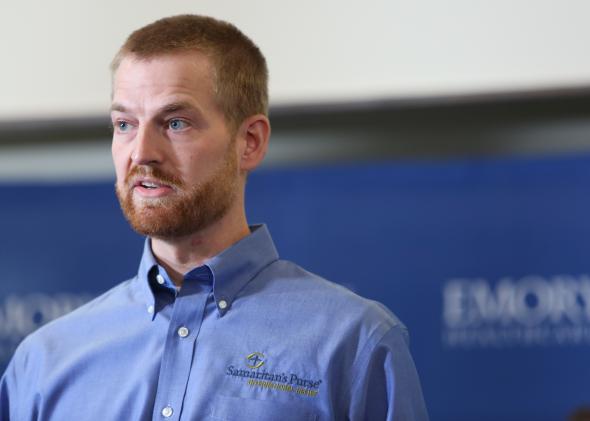There are many misperceptions about the Ebola virus, but the one thing everyone typically agrees on is that its mortality rate is extremely high—between 50 to 90 percent. If you get Ebola, there’s a very good chance you will die.
But in a provocative essay for the London Review of Books, renowned anthropologist and physician Paul Farmer, who has recently returned from Liberia, argues that this is not—or rather, shouldn’t necessarily be—the case:
An Ebola diagnosis need not be a death sentence. Here’s my assertion as an infectious disease specialist: If patients are promptly diagnosed and receive aggressive supportive care—including fluid resuscitation, electrolyte replacement and blood products—the great majority, as many as 90 percent, should survive.
The survival rate for the disease in the U.S. is likely to be close to that. Including Thomas Eric Duncan and the two nurses infected by him, as well as those who were intentionally brought back to the U.S. for treatment, there have been eight Ebola patients in the U.S. so far. Only Duncan has died. With cameraman Ashoka Mukpo now declared Ebola-free, five of them have recovered. Nurses Nina Pham and Amber Vinson are both reportedly improving. Assuming they do recover, that’s an 87.5 percent survival rate, albeit with an incredibly small sample size.
This doesn’t quite prove Farmer’s point. Kent Brantly and Nancy Writebol, the two missionaries who were the first Americans to recover from the disease, were treated not just with conventional means but with an experimental drug that’s not yet available in West Africa, though the extent to which this aided their recovery more than rehydration isn’t yet clear. (Not everyone treated with ZMapp has lived.) Other patients were treated with a serum made from the blood of recovered patients, which should hopefully be widely available in a few weeks.
Nevertheless, it’s pretty clear that experimental drugs don’t account for the difference in mortality between the U.S. and the three countries where the disease is concentrated, where it may soon be as high as 70 percent. It’s a question of resources: “staff, stuff, space and systems,” as Farmer, who is best known for his pioneering public health work in Haiti, puts it. Whether or not Ebola is a death sentence still depends largely on where you’re treated for it.
